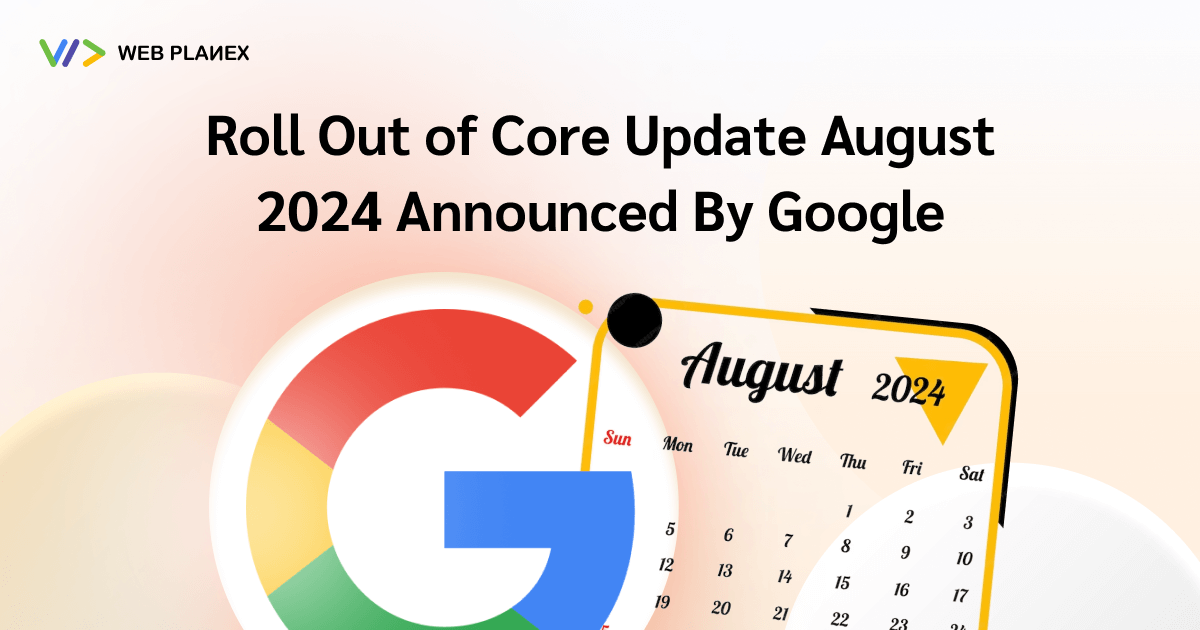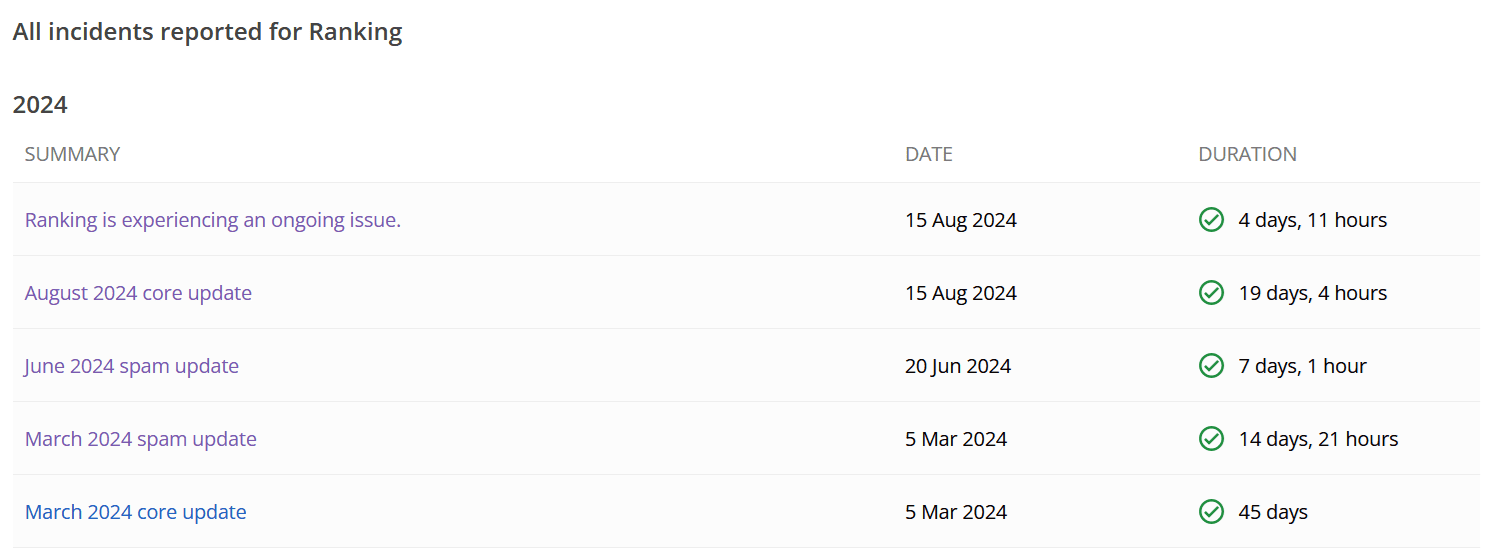
Google’s August core update 2024 rollout is now complete. The rollout started on 15th August 2024 and was completed on the 3rd of September 2024. It took a whole of 19 days for the rollout to complete.
Google also rolled out a spam update in both March and June of 2024.

Let’s get started on what the update is, what are the key focus, and how it is going to impact Google’s search engine results. In this guide, you’ll learn about the nature of core updates and how they work, plus how you can recover from the negative impact of core updates.
What You Need To Know About Core Updates
In case you don’t know, core updates are the significant and broad changes made by Google in search engine algorithms, which evaluate and define ranking factors in search engine result pages (SERPs). These changes are made every once in a while several times a year.
Core updates aim to improve the overall user experience by providing helpful results to user queries or searches. These updates focus on what and how the web content is produced, and based on that the algorithm changes are made.
Everything you need to know about the August 2024 Core Update
This Update is highly focused on pushing the content that is made for the users and not only for the search engine ranking. Only that content will be considered to rank higher which people find genuinely helpful and relatable.
This time it is much more than just a normal update, keeping the feedback in mind from the creators and publishers, who were significantly impacted by the September 2023 core update. The focus will be on prioritizing and indexing original, meaningful and comprehensive content.
And it seems as though the update had a ranking bug within the next day which was removed by the 20th of August. So if you have seen any hiccups in your site performance during that period, that is probably something not to worry about. The suggestion would be you should consider analyzing the traffic of your website from the first week of September and going forward.
The update will also consider changes made on sites for improvement in producing user-centric content. Chances are future updates are also going to be based on the same approach, focusing on enhancing user experience.
What can you do if you’re hit negatively by the update?
Analyze the search traffic first – how, when and what difference was seen.
- Google recommends waiting for a few days to analyze the website traffic after the update is rolled out. It is recommended due to it can help determine the exact changes. Try waiting for a couple of days before coming to any conclusion.
- Check if it is just a miner drop or if it is a massive drop in your search traffic. Once you determine what are the most significant impacts you’ve seen. Make changes in your content accordingly
- You need to make sure your content is user-centric. Meaning it should be made for the audience, and you need to ensure your audience is getting what they are searching for. The content you’re producing should be meaningful, easy to understand and most importantly it should be original.
- Google also states that analyzing content by user approach with different search types might also help you find what you need to work on. Whether it is a search query, video, or news on your site.
If you have been hit negatively, you might see improvements in a short period of time, or it might take a few months as well for Google to improve ranking. In some cases, if you do not see any improvements you might need to wait till the next core update.
Here are a few tips you can try that are recommended by Google
- Optimization of technical aspects such as site speed, and secure browsing are still vital factors.
- Analyze the user interaction and site performance on a daily basis. Use Google Analytics and other analytic tools for such insights.
- Modify your content, for example, you can rewrite your web content keeping the update in mind to keep up with the pace.
- Modification of your web layout by restructuring your site to increase engagement. Add necessary elements that might be helpful for the audience.
- You also might want to remove some content and elements that are not working for you or have a negative impact on your traffic.
- You have to be mindful while removing content from the web as it works against the ranking algorithm. Only remove the content that is absolutely in no need of yours. Remember high-quality content is the key to your SEO success.
- Google believes If you find yourself removing the content, it means the content was merely produced for ranking purposes and not for the user or audience.
- If you want long-term sustainability consider implementing guidelines set by Google.
Final Insights on the August 2024 Update
The conclusion is that after the August 2024 core update search engine ranking on Google will highly depend on the content of your web, aiming to provide high-quality reliable content only. So you have to be vigilant about the fact that your content should be structured in a way that is not only produced for SERP ranking but for the users first. Even the smallest things can cater to your long-term success. If you have a user-first approach then you are good to go now and beyond today.




